ITC Hotels review: sustainable luxury in India
The country's stunning scenery is matched by resorts that are both beautiful and eco-friendly
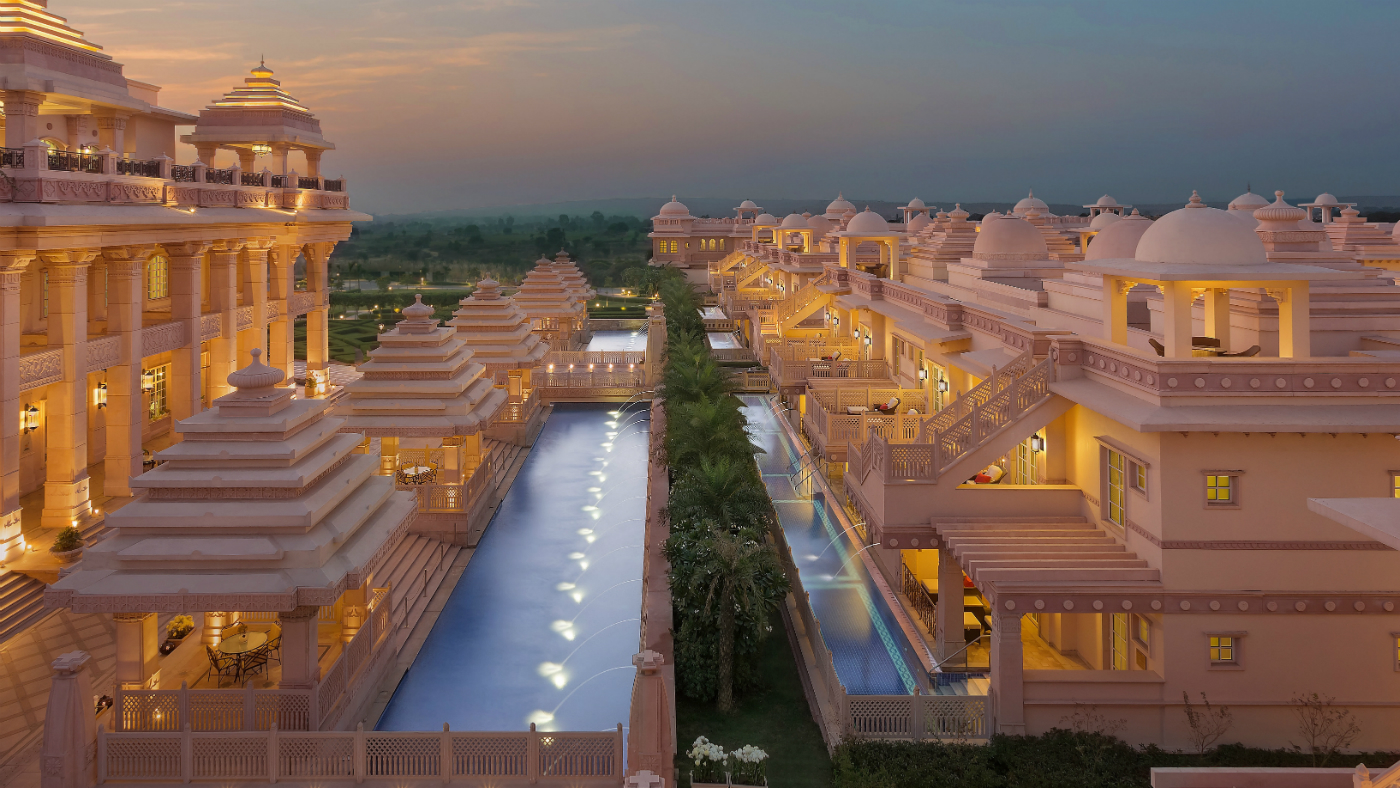
A free daily email with the biggest news stories of the day – and the best features from TheWeek.com
You are now subscribed
Your newsletter sign-up was successful
Sustainability is getting sexy and in the world of hospitality, India-based ITC Hotels – The Luxury Collection is the name you ought to know.
Showcasing India’s rich tapestry of history fused with 21st century ideals, they are about how they treat not just their customers, but the animals that provide for them, their fruit and vegetables and the soil that raises them, the employees who work for them and the society in which they exercise their trade. Many luxury hotels can look somewhat the same nowadays which is why it’s important to create hotels with soul.
Luxury has evolved from extravagance to discretion, a shift that’s evident in ITC’s new ‘responsible luxury’ practices where guests embrace luxury guilt-free and savour an intelligent, sustainable version of luxury that is green at heart. Each hotel is certified with a LEED® Platinum rating – they are the greenest luxury hotel chain in the world. As the 2017 winners of the prestigious Porter Prize 2017 award for 'Excellence in Corporate Governance and Integration' and for its admirable contribution in 'Creating Shared Value', you’ll be in good hands when they design you a week to remember.
The Week
Escape your echo chamber. Get the facts behind the news, plus analysis from multiple perspectives.

Sign up for The Week's Free Newsletters
From our morning news briefing to a weekly Good News Newsletter, get the best of The Week delivered directly to your inbox.
From our morning news briefing to a weekly Good News Newsletter, get the best of The Week delivered directly to your inbox.

Hyderabad - A city on the rise
The Week Portfolio's first stop is the new ITC Kohenur in Hyderabad (opened June this year). The fourth most populous city of India throngs with people and is buzzing courtesy of the HITEC City (known locally as 'Cyberabad'), and other neighbourhoods like Banjara Hills and Jubilee Hills, replete with commercial and residential developments – think IT, pharmaceutics, shopping malls and swanky restaurants.
Tech giants Microsoft, Facebook and Apple have set up their first offices in India here too, courtesy of visionary politician Chief Chandrababu Naidu encouraging them to make foreign investments in India and offering them local land at a low cost.
This is a city on the rise. Passenger traffic through Hyderabad airport is growing at a rate of around 24% year over year (there’s internal flights from the major cities, and direct flights from London). Ancient civilisations flow with a young, professional nation with a high disposable income. A modern, mature, self-confident, worldly and entrepreneurial India is apparent.
A free daily email with the biggest news stories of the day – and the best features from TheWeek.com
Among the top 10 leaders globally, Y.C. Deveshwar, Chairman of ITC Limited, is ranked number seven. As the largest company in the world of its size to be carbon, water and waste positive, it’s a big achievement. With more than 100 properties in over 70 destinations in the country, as well as having five of their hotels powered through self-owned wind farms and their own sleep lab in Bengaluru, where a team of scientists figure out how guests can get better sleep, it is little wonder they are a member of Forbes 2000 Largest Public Companies list.
Kohenur - where information is the new currency
I am greeted with a traditional headscarf and ceremonial bindi at ITC Kohenur. They balance the human touch with new technology seamlessly. Enter your suite and your every wish can be granted through an E-Butler iPad: lights, music, television, butler service and reservations. You can do everything without talking to anyone – but by doing so you would miss the charming hospitality of the staff.
The hotel's solar strategy design reflects its name, meaning “Mountain of Light” in Persian, and also draws inspiration from the precious 13th-century Kohinoor diamond, one of the largest cut diamonds on the planet, discovered in this area. The hotel captures maximal sunlight to preserve energy and employs 100% LED lighting, accompanied with vertical gardens. Elsewhere, the entire imprint of plastic is out. They buy bottles from Italy as they produce the best glass, the bottled fresh water is infused with wellness herbs and branded SunyaAqua and Vitamin C has been in-built into the shower. “We come with an intent that is so pure,” says General Manager Tejinder Singh.
Information is the new currency of hospitality. Now, people are proud to write ‘organic’ and ‘local’ on their menus, along with the name of the source and the story behind it. It is not just reasonable to buy into these experiences without a promise that all attempts have been made to be responsible and do no harm.
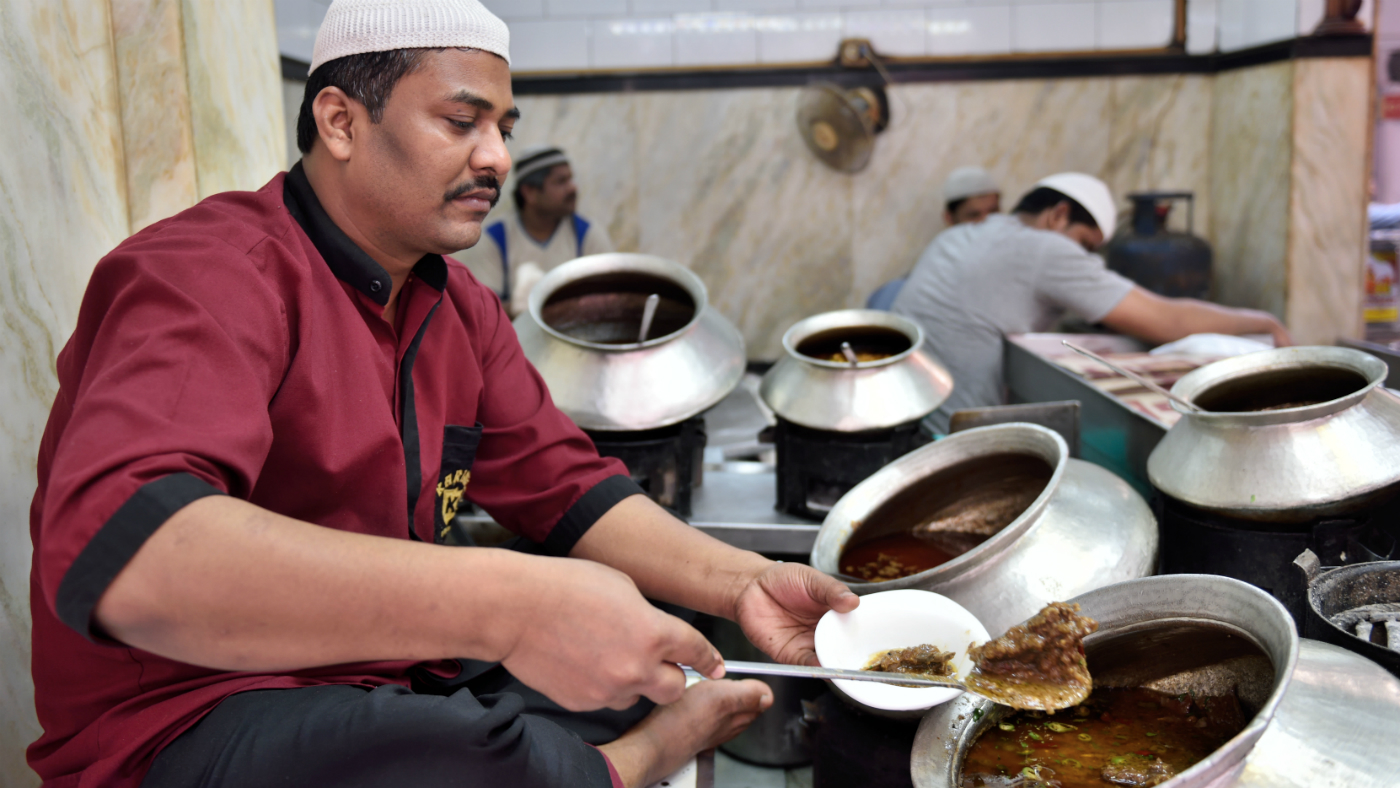
Locally sourced cuisine
I dive into ITC’s unique take on provenance cuisine. There is a Choose Wisely programme where guests are educated on the reliance of local sourcing, healthier foods and warned about fish that are endangered due to over-fishing, while their conference menus include Alert Meets, scientifically created to reduce sluggishness.
“Food-wise we buy produce directly from the farmer. Locally sourced ingredients constitute at least 40 per cent of the food products bought by the kitchen at each hotel,” chef tells me as I partake in a royal feast of age-old recipes from the kitchens of the royal families of Hyderabad at Dum Pukht Begums, before walking it off strolling the grounds of nearby Chowmahalla Palace, which sees 1,000 visitors a day streaming through.
The Palace is at the centre of the city’s cultural happenings and regularly hosts art shows. This Unesco World Heritage Site showcases spectacularly restored gardens, courtyards, fountains and the Khilwat (Durbar Hall), which was the seat of the Nizam’s power. Petrolheads are sure to enjoy the vintage car collection display.
From here, I head to nearby Laad Bazar. Located in a bustling narrow street packed with shops selling perfumes, saris, textiles and jewellery, the market is the go-to place for wedding shopping and for magpies in search of handcrafted glittering lac bangles produced in local workshops and back alleys. Expect to see local craftsmen working, sitting barefoot on the floor hammer and pick-tools in-hand.
Delights in Delhi
Next stop: Delhi. The air-conditioned car affords plenty of time to people watch as we sit on gridlocked roads, slowly making our way to ITC Maurya. It’s the quintessential Indian scene. Saris in every shade of colour drying on washing lines; a cow chilling in the middle of the motorway; entire families on one moped without a helmet; three-wheeled rickshaws threading between trucks; a huge ox with serious-looking horns pulling a cart; a young man on a bicycle precariously balancing two mattresses on his head.
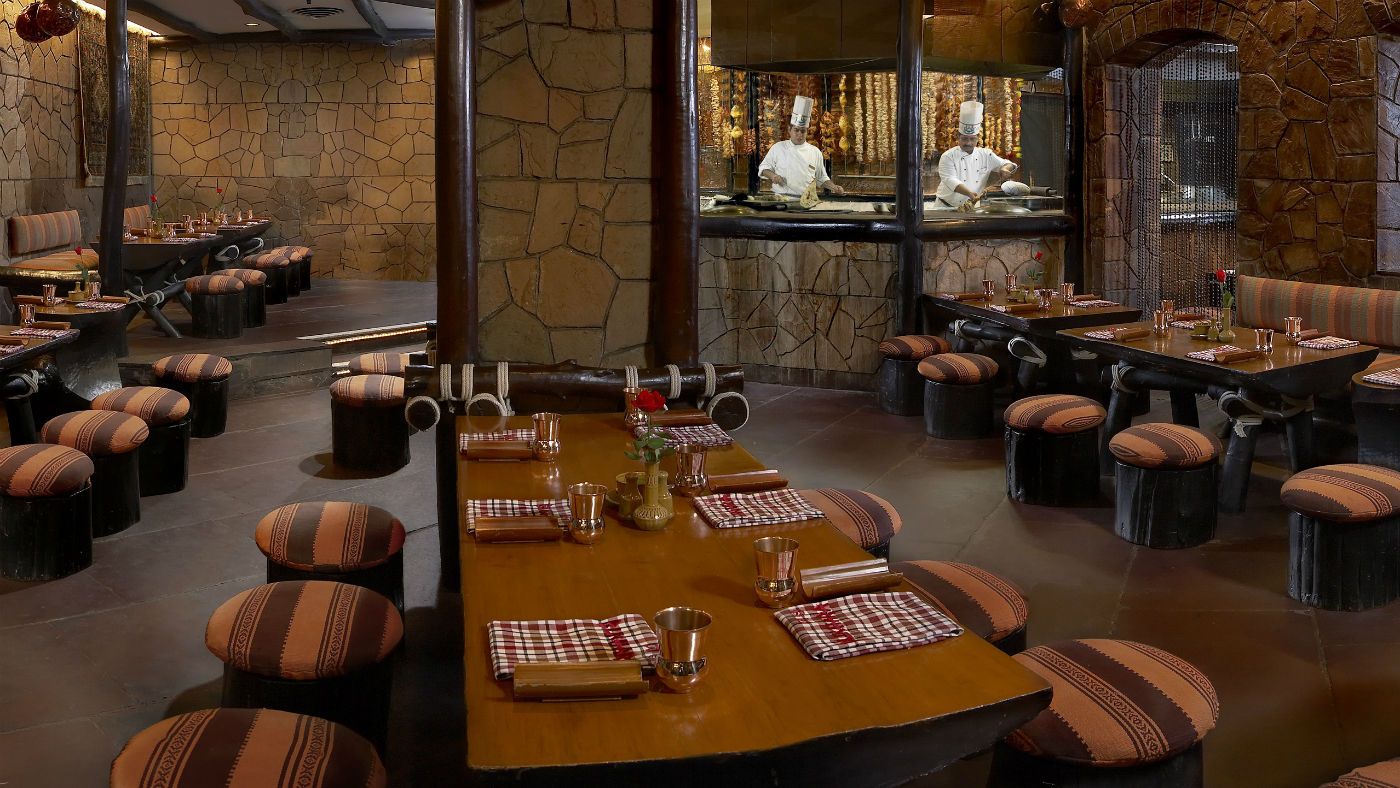
After the trip I’m in need of a gin and tonic at award-winning restaurant Bukhara, a landmark dining destination in New Delhi, frequented regularly by heads of state and celebrities.
This is reportedly the most successful Indian restaurant in the world and it takes 400 covers a day. Its turnover is more than some hotels in the country. It took seven years of research to perfect the menu of Sikandari Raan, Murgh Malai kababs and the iconic Dal Bukhara – cooked and simmered over slow coal fires of the tandoor overnight for 18 hours. Be prepared to get messy and connect with the food through your fingers. Community eating in India is the thing. You chat, share stories and eat with both hands – there are no mobile phone distractions.
If you fancy sampling authentic street food and feel the local life through your taste buds, then sign up for the Food Sherpa Trail in Old Delhi with ITC Maurya’s Chef Manisha. “ITC endeavours to revive forgotten recipes and concepts and trace the culinary wisdom of our ancestors. Our intent is to showcase what the region stands for so we explore well-loved local food destinations for inspiration.”
Seek out pockets of quiet and calm at the heart of Delhi’s mayhem with reflective monuments such as Jama Masjid and Humayun’s Tomb, before taking a walk through the walled city of Old Delhi’s warren of narrow lanes and alleyways, stopping at splendid carpet and pashmina shops along the way. It is easy to lose oneself amid the crush of people, shops and twist and turns before ending up at Karim’s.
In the heart of Old Delhi, the restaurant celebrates its 105th birthday this year – a testament to the enduring quality of the food. There are over 40 dishes to choose from, from the fluffy roti bread with slowly cooked nihari (beef) stew to the more adventurous fried goat brain (it looks like over-boiled cauliflower but tasted as one would imagine brain to taste).
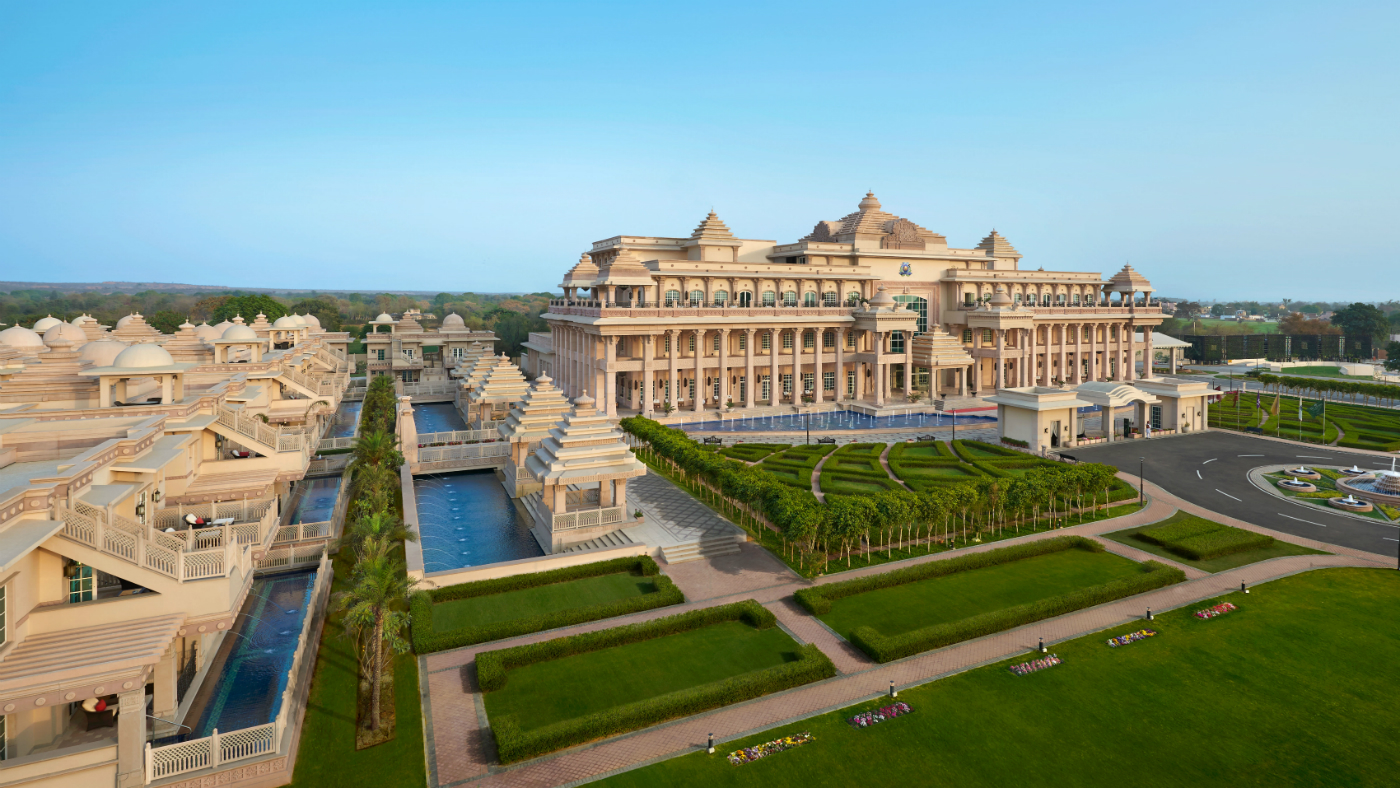
Grand Bharat - a private paradise
Final stop: ITC Grand Bharat, Gurgaon, for some TLC. Tranquility washes over me as I drift into this palatial realm. India’s first all-suite hotel set on a magnificent estate is only a 45 minute drive from Delhi. Architecturally splendid in size it is sumptuously decorated with lashings of silk, vast marble floors, chandeliers and colossal bowls of lotus blooms floating in water (the national flower of India). You’ll drive through the serene loveliness of the Aravalli Hills to arrive at what feels like a secret domain, and home to the country’s only 27-hole Jack Nicklaus golf course. Here you’ll binge on Ayurveda advice, lungfuls of fresh air and heavenly treatments.
Suites come with a semi-private pool and your own Retreat Host who provides a 24/7 butler-esque service. Hungry? Order daily dishes of curated swasthya cuisine and local Mewati barbeque to your private patio or dine at one of the four restaurants. Their farm to plate philosophy comes courtesy of the organic farm on the estate. Meals aim to restore and energise, calm your mind and uplift your mood – and my favourite - slow down the effects of ageing. If you’re not one for chilling out poolside, opt for Segway, zorbing, tennis, hiking, cooking programmes, or a day trip to the Taj Mahal - it’s only a three hour drive.
I rise for a 6am nature walk and amble through the genteel landscape with a naturalist, feeling the warming sunshine filtering through the trees while listening to the first bird calls of the day, collecting shimmering peacock feathers as trophies along the way. The peacock is the national bird of India because of its rich religious and legendary involvement in Indian traditions, and they roam royally at will here.
The afternoon is spent at the sensational and extravagant Ayurvedic Kaya Kalp – the Royal Spa is about as Zen as they come and is part of ITC’s ‘Unhurried Luxury’ experience. There are 650,000 doctors practising Ayurveda in India - its birthplace. ITC Bharat offers are an impressive 64 treatments available, think: Amala Himalayan body renewal and Nimala bathing rituals. You’ll need a week to work your way through them all.
My consultation with the resident Ayurveda doctor reveals I am pitta-vata and I receive a bespoke treatment massage plan to recalibrate mind and body. Heard of Vata Dosha? Me neither. It influences your physiology, your body, what you like, what you don’t, your habits, your character and your emotions. It is defined by the balance of my three doshas - vata, pitta and kapha (space and air, fire and water and water and earth) and it represents your body’s natural state of equilibrium.
My dosha restored, I reflect that with the help of ITC my conspicuous consumption has yet been with conscience.
Stays start from £150 per night at ITC Kohenur, Hyderabad; £250 per night at ITC Grand Bharat, Gurgaon; £150 per night at ITC Maurya, New Delhi For more information or to book, visit itchotels.in.
Flights with Jet Airways start from £443 from London Heathrow to Hyderabad, with fares subject to availability. To book, visit jetairways.com.
-
 Health insurance: Premiums soar as ACA subsidies end
Health insurance: Premiums soar as ACA subsidies endFeature 1.4 million people have dropped coverage
-
 Anthropic: AI triggers the ‘SaaSpocalypse’
Anthropic: AI triggers the ‘SaaSpocalypse’Feature A grim reaper for software services?
-
 NIH director Bhattacharya tapped as acting CDC head
NIH director Bhattacharya tapped as acting CDC headSpeed Read Jay Bhattacharya, a critic of the CDC’s Covid-19 response, will now lead the Centers for Disease Control and Prevention
-
 The Gallivant: style and charm steps from Camber Sands
The Gallivant: style and charm steps from Camber SandsThe Week Recommends Nestled behind the dunes, this luxury hotel is a great place to hunker down and get cosy
-
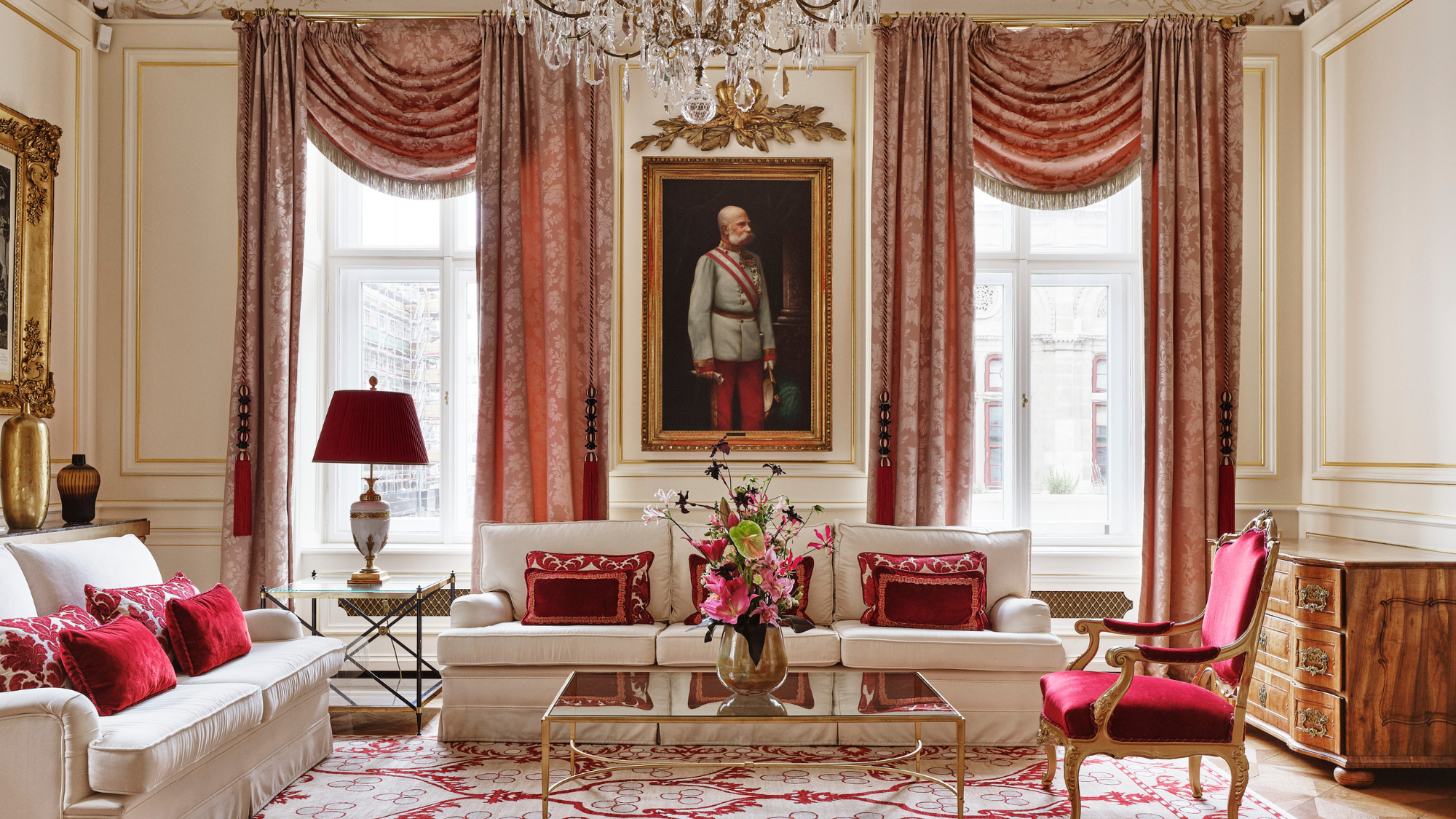 Hotel Sacher Wien: Vienna’s grandest hotel is fit for royalty
Hotel Sacher Wien: Vienna’s grandest hotel is fit for royaltyThe Week Recommends The five-star birthplace of the famous Sachertorte chocolate cake is celebrating its 150th anniversary
-
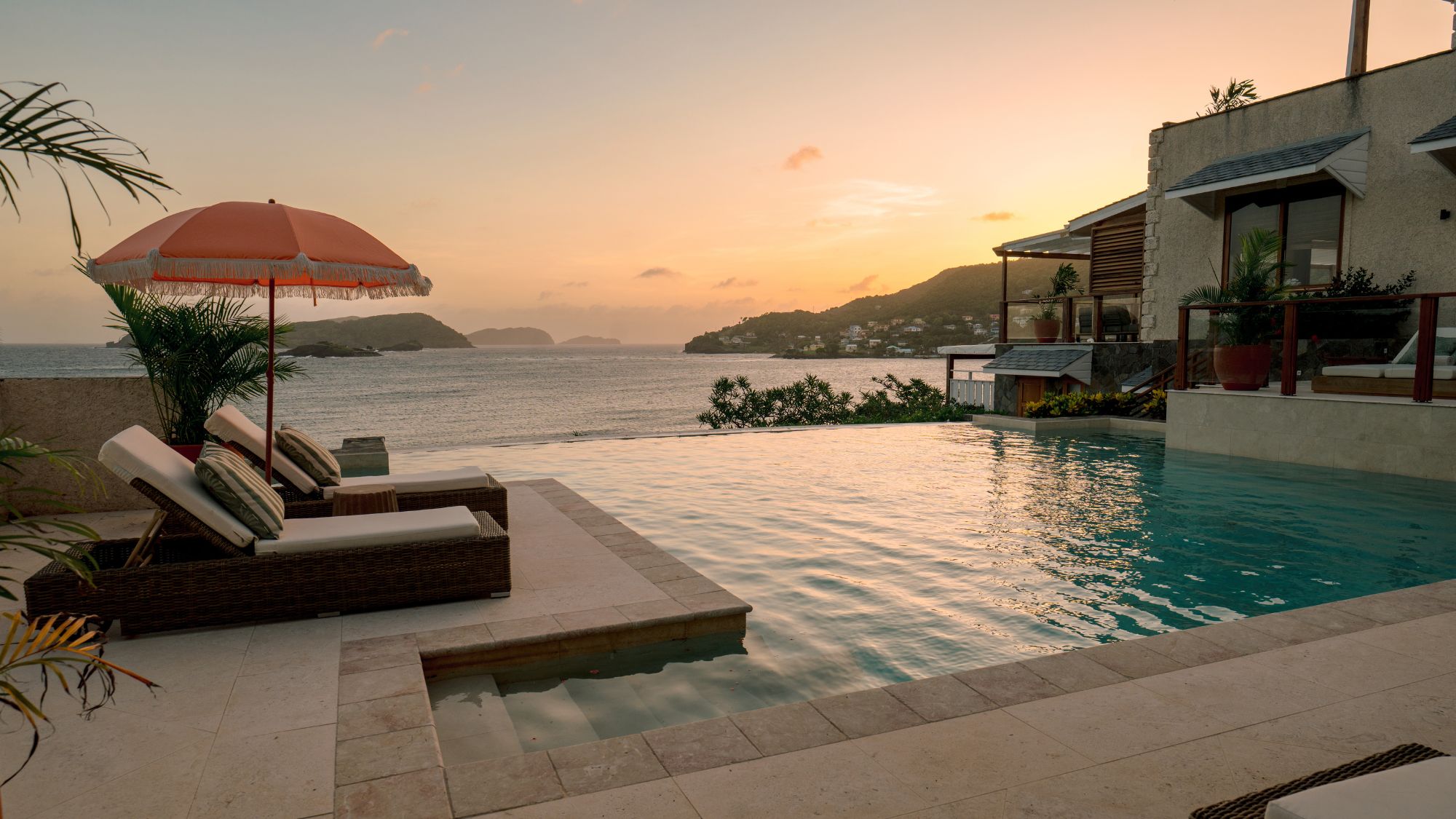 Rock Villa, Bequia: a hidden villa on an island epitomising Caribbean bliss
Rock Villa, Bequia: a hidden villa on an island epitomising Caribbean blissThe Week Recommends This gorgeous property is the perfect setting to do absolutely nothing – and that’s the best part
-
 Villa Treville Positano: a glamorous sanctuary on the Amalfi Coast
Villa Treville Positano: a glamorous sanctuary on the Amalfi CoastThe Week Recommends Franco Zeffirelli’s former private estate is now one of Italy’s most exclusive hotels
-
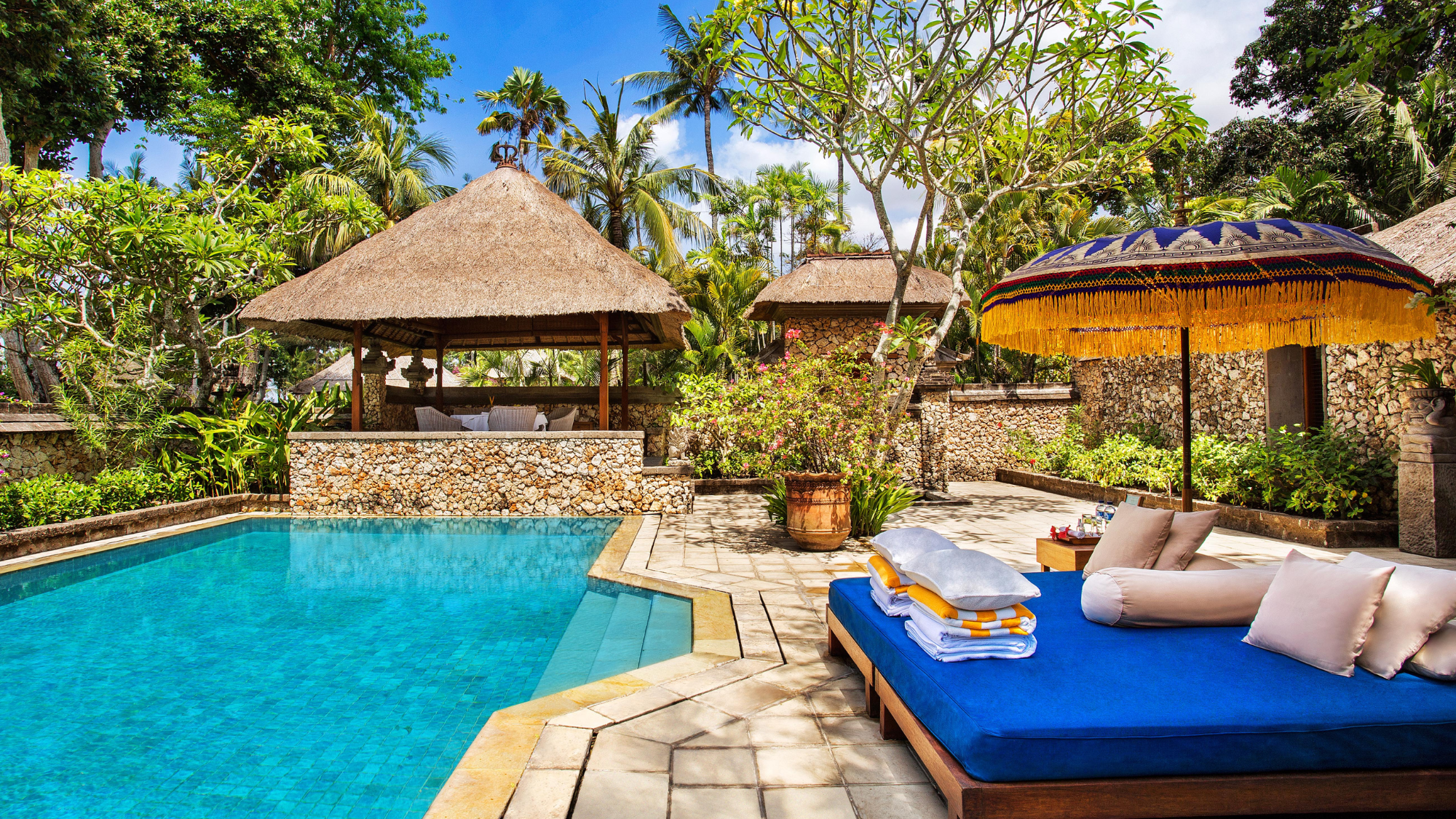 The Oberoi Beach Resort, Bali: a calm retreat in the heart of Seminyak
The Oberoi Beach Resort, Bali: a calm retreat in the heart of SeminyakThe Week Recommends Tradition meets modernity at this serene beachfront resort
-
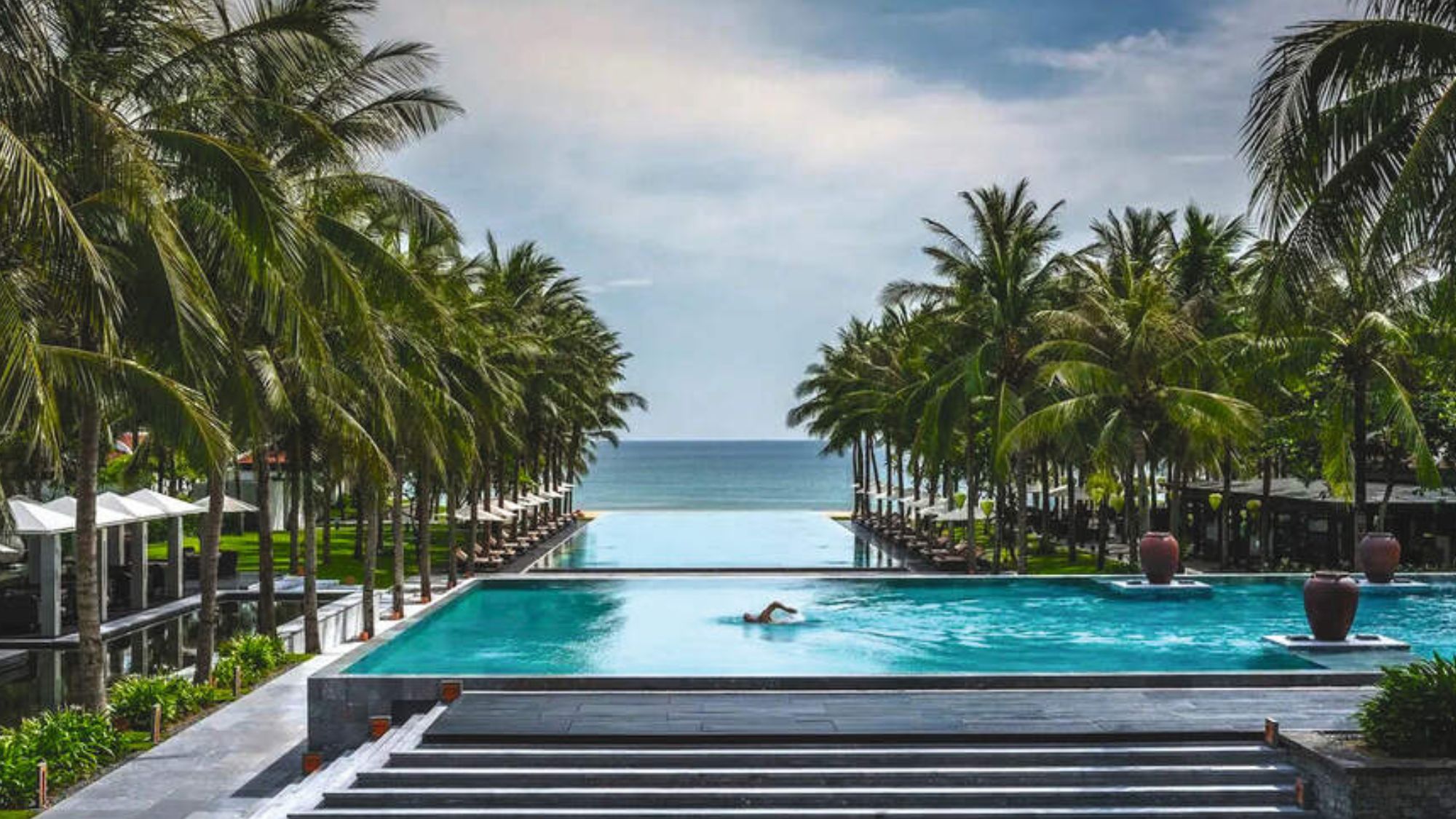 Six sensational hotels to discover in 2026
Six sensational hotels to discover in 2026The Week Recommends From a rainforest lodge to a fashionable address in Manhattan – here are six hotels that travel journalists recommend for this year
-
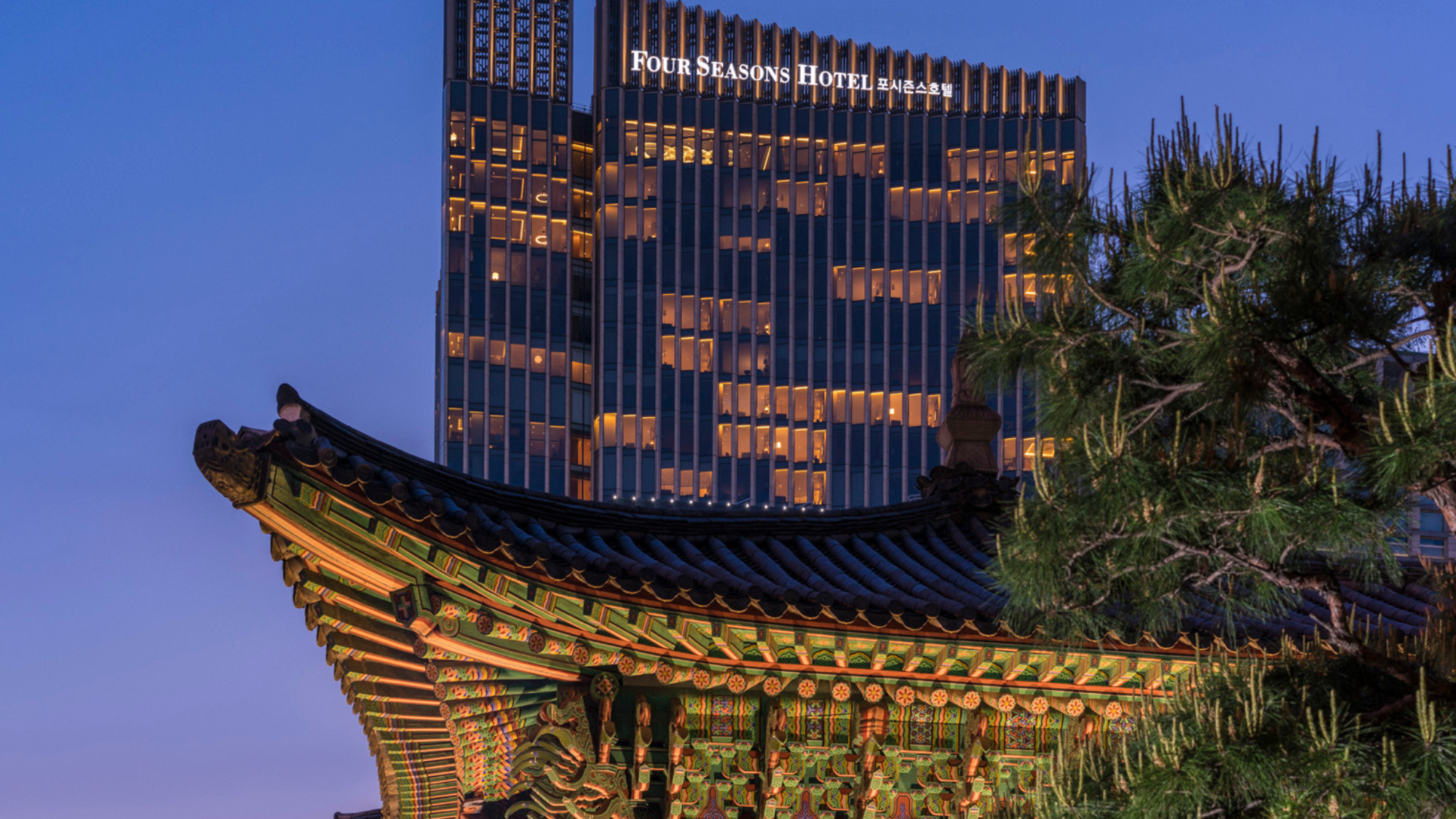 Four Seasons Seoul: a fascinating blend of old and new in South Korea
Four Seasons Seoul: a fascinating blend of old and new in South KoreaThe Week Recommends Located right in the heart of the action, this classy hotel is the perfect base to explore the capital
-
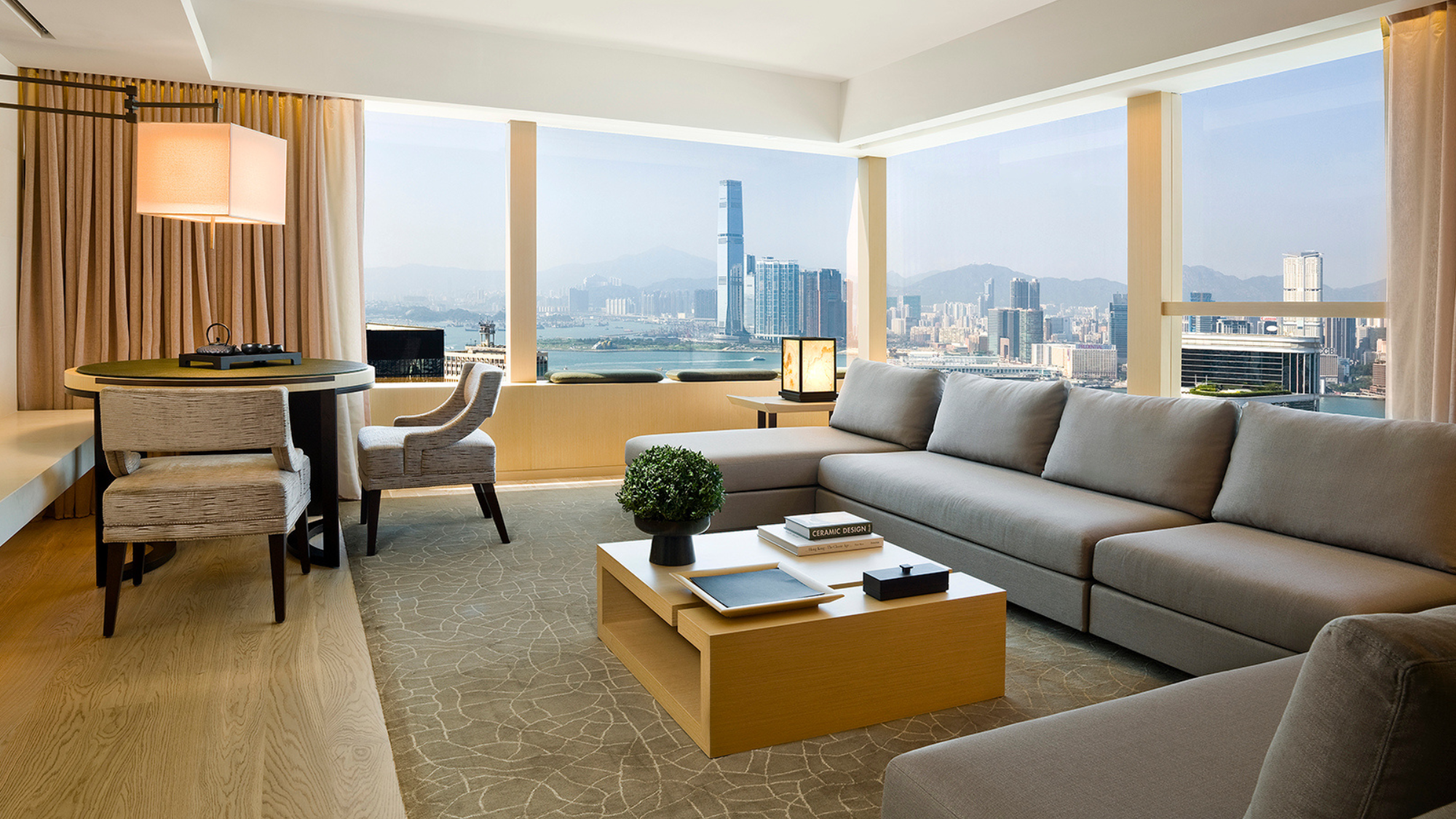 Upper House Hong Kong: a serene sanctuary in the bustle of the city
Upper House Hong Kong: a serene sanctuary in the bustle of the cityThe Week Recommends Panoramic harbour views and super-stylish interiors elevate this luxury hotel to another level